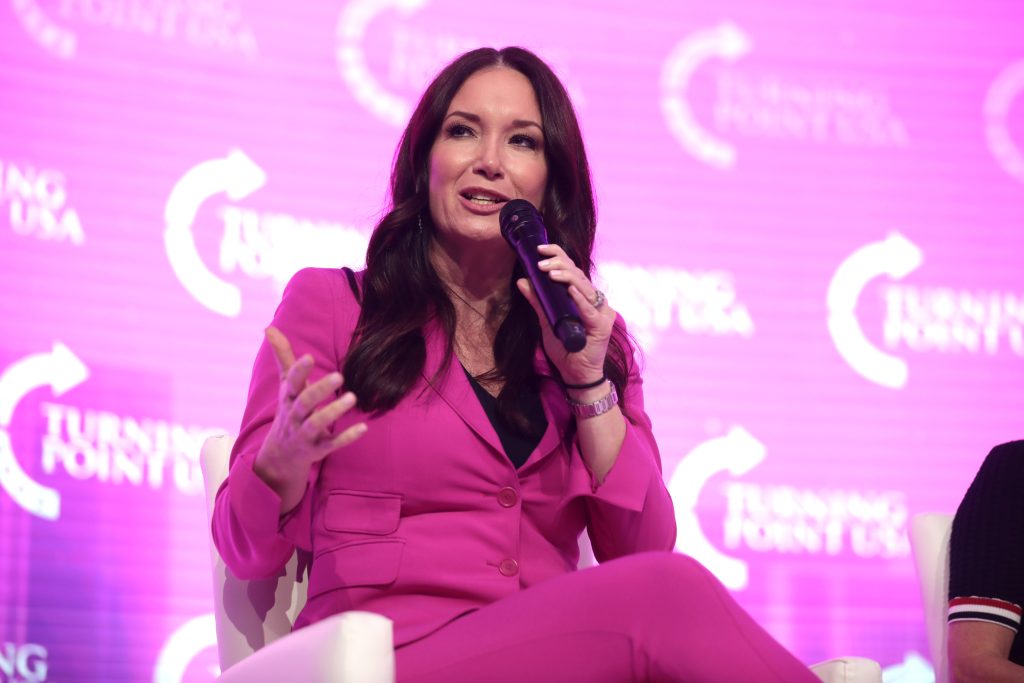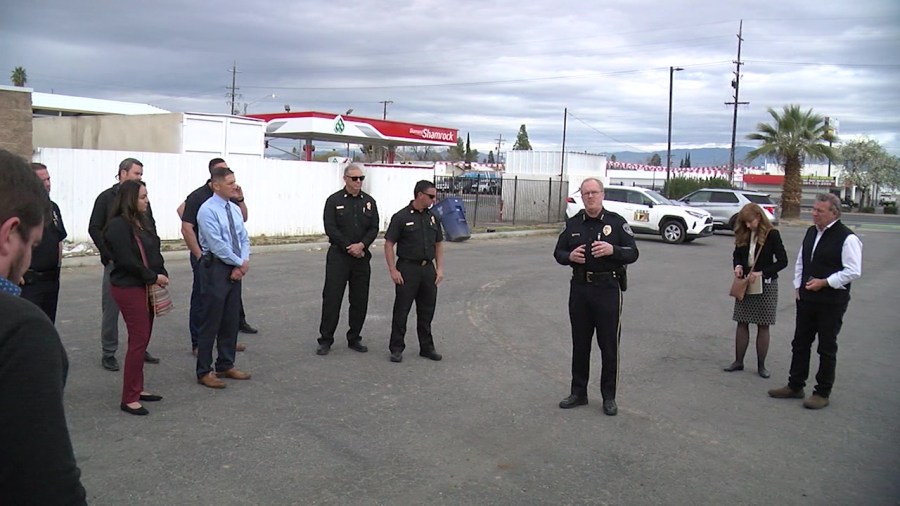After a unanimous vote from the U.S. Senate Committee on Agriculture, Nutrition and Forestry on Feb. 3, Brooke Rollins is on her way to a Senate confirmation vote for U.S. Secretary of Agriculture. President Donald Trump nominated Rollins, a native Texan, to lead the U.S. Department of Agriculture.
She underwent a nearly four-hour hearing with the Senate Ag Committee on Jan. 23. Although an exact date for the Senate vote is not known, it could be within days of her Senate Ag Committee confirmation.
Rollins is a former director of the Domestic Policy Council at the Office of American Innovation. She served as president and CEO of the America First Policy Institute until she was nominated for secretary of agriculture. She grew up on a family farm and was active in 4-H and FFA before graduating from Texas A&M University, where she earned a bachelor’s degree in agriculture development. Rollins also received a law degree from the University of Texas.
“I’m just a small-town girl from Glen Rose, Texas, who was blessed with everything God and America had to give—and I have always felt a responsibility to give back,” Rollins said in her opening statement at the confirmation hearing. “And across each role in my public life, I have been able to showcase my love for America, a focus on the forgotten, a talent for organization, a drive for action and most importantly, a responsibility to serve.”
If confirmed by the Senate, Rollins will be the second woman to serve as secretary of agriculture. The first woman to lead the USDA was Ann Veneman, who served under President George W. Bush.
“I commit to you today that if confirmed, I will do everything in my ability to make sure our farmers, ranchers and rural communities thrive,” Rollins said at the hearing. “My role is to defend, honor and elevate our entire ag community in the Oval Office, to ensure that every decision made has that front of mind.”
Day one agenda
During the hearing, Rollins outlined her top priorities while serving as head of the USDA. At the top of her list is the financial assistance in the American Relief Act of 2025, which is to be dispersed to those affected by economic and natural disasters in 2023 and 2024. That legislation was passed in December, and Rollins wants to ensure those funds are doled out to recipients as soon as possible.
Next, Rollins hopes to collaborate with other USDA officials, ag stakeholders and industry experts to better handle the multiple animal disease outbreaks that have been top agriculture issues—specifically highly pathogenic avian influenza and New World screwworm.
Third, Rollins said she plans to work with the Senate and House Agriculture Committee to pass a farm bill in a timely fashion that provides the necessary support for farmers and ranchers. Fourth on her list, Rollins said, in the short term, she plans to modernize, realign and rethink the USDA to meet the needs of the American people.
“This department, with its tens upon tens of thousands of public servants across the nation and beyond, must be aggressive, effective and focused on its core mission of serving all American agriculture—and all the American people,” Rollins said. “It must, to borrow a phrase, put America first.”
Finally, her long-term goal is to provide better support for rural communities so that they might prosper the same as large cities.
“This includes exploring improvements to the department’s rural development programs, demanding strong and steady domestic and export markets for our beautiful agricultural bounty, eliminating burdensome and costly regulations that hamper innovation, ensuring nutrition programs are efficient and putting in the work to make sure we have a healthy and prepared next generation of farmers, ranchers and entrepreneurs for the next century of American greatness,” Rollins said.
Tariffs, immigration and energy
When the floor opened for questions from committee members, several hot-button issues were sure to be brought up. One major concern for many under the Trump administration is trade and the implementation of tariffs.
“In the last handful of years, we’ve gone from not having a trade deficit in our agricultural communities to having a $45 billion trade deficit,” Rollins said. “Of course, that has led to many challenges, including food inflation. There are many tools in our toolkit both through USDA and expanding markets, which are all intertwined, to begin immediately to work to bring that deficit down and hopefully soon get it to zero.”
Rollins said Trump understands tariffs could have devasting effects on agricultural markets, but that he considers them to be essential for ensuring a thriving economy during his second term. She said she has consulted with former U.S. Secretary of Agriculture Sonny Perdue about how he handled the agricultural impacts of tariffs during Trump’s first term.
The USDA offered billions of dollars in emergency payments to farmers while Perdue led the department to counteract the market losses due to tariffs. Rollins said she would provide similar, but equal, trade aid if the situation arises.
Many expect Trump’s mass deportation plans to affect farm labor, and the committee questioned Rollins on how she plans to handle this situation.
“The president’s vision of a secure border and mass deportations at scale is something I support,” Rollins said.
Rollins said she plans to work with the Department of Labor and Congress to reform the H-2A migrant farm labor program and counteract the effects of losing the undocumented workers that vegetable operations, fruit orchards and dairies often employ.
Rollins said although she has not been privy to the internal plans for deportation, Trump has made it clear that illegal immigrants that have committed crimes are the priority for deportation. She did not know if the U.S. Immigration and Customs Enforcement office would be raiding farms, and she believes the president will find a way to combat hypothetical increases to food prices due to lack of farm labor.
When questioned about her stance on energy, Rollins did not shy away from her family connections to the oil drilling industry, but she vowed to be objective when it comes to energy as the secretary of agriculture.
“No doubt coming from Texas, I was a massive defender of fossil fuels and the importance of fossil fuels in the energy independence and energy dominance narrative,” Rollins said.
Rollins said she would be committed to defending and elevating all sources of fuel if confirmed. In addition, she reminded the committee that Trump’s energy plan includes biofuels like ethanol and biodiesel.
Lacey Vilhauer can be reached at 620-227-1871 or [email protected].

Read More >
Secretary of Agriculture confirmation hearing scheduled for Jan. 23
Brooke Rollins, native Texan and president and CEO of the America First Policy Institute, was tapped to lead the USDA.
#Rollins #advanced #Senate #vote #secretary #agriculture










Leave a Reply